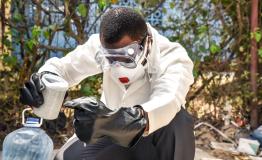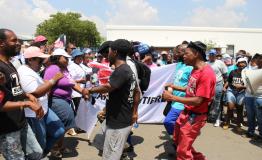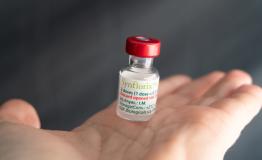

Georgia
Georgia is one of the 30 countries with the highest rates of MDR-TB. MSF first supported TB activities in Abkhazia and South Ossetia regions between 1993 and 1994, and drug-resistant TB (DR-TB) care in Abkhazia between 2001 and 2014.
In 2014, we began supporting the use of bedaquiline in Georgia through the compassionate use mechanism, whereby patients with life-threatening conditions gain access to investigational drugs. The following year, Georgia became one of 17 participating countries in the endTB observational study of bedaquiline and delamanid to find shorter, more tolerable, injection-free treatments for MDR-TB.
A total of 297 patients were enrolled in this study. In 2017, the first patient was enrolled in the endTB clinical trial – a randomized trial that followed the endTB study in the search for better MDR-TB treatment.
Today, Georgia is one of only four MDR-TB high-burden countries to have implemented all-oral regimens for more than 95 per cent of MDR-TB patients.
MSF began working in Georgia in 1993 to deliver healthcare to people affected by internal displacement and conflict. Activities included surgery, vaccinations and supplying drugs to health facilities. Over the following years, we provided assistance to Chechen refugees in Pankisi Valley, running medical and surgical programs as well as donating drugs. From 2000, we expanded our activities to include general healthcare for vulnerable people and treatment for visceral leishmaniasis.
When the last patients in the endTB trial complete their follow-up in 2020, MSF programs in Georgia will close.
No. staff in 2019: 15 | Expenditure in 2019: €0.6 million | Year MSF first worked in the country: 1993


MSF challenges COVID-19 myths with new quiz challenge app

MSF and TB activists disrupt opening of TB conference to protest drug corporations keeping life-saving medicines from people

Tips to De-Stress
